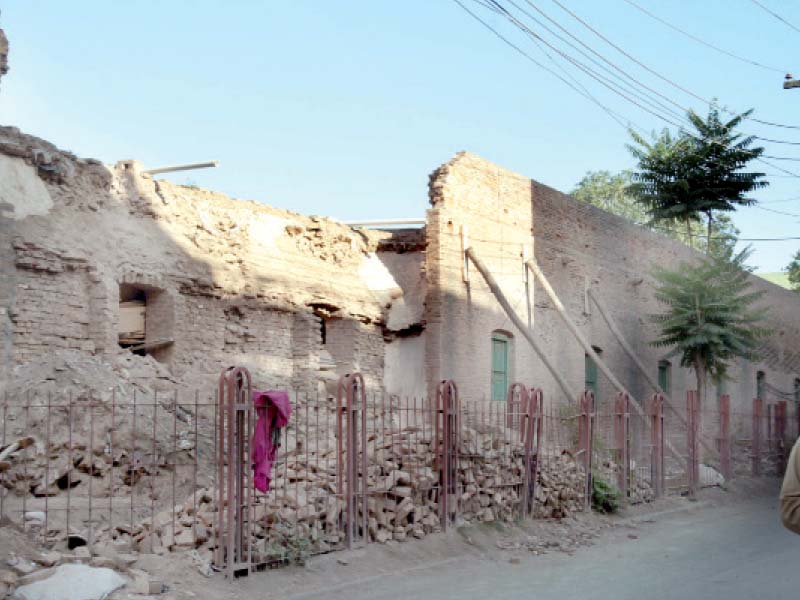
The western wall of Gor Gathri collapsed, taking with it an irreplaceable part of history. Locals as well as historians say continued apathy from official quarters may end up in more damage to the historic compound.
Gor Gathri houses a number of historical sites, including a temple, a historical mosque, Sara-e Jahandad from 1641, a fire brigade station from 1912 and a Sikh era building known as the Abu Tabela Pavillion. The wall which gave way is part of the former structure, the pavillion.
Dilapidation
When the western wall collapsed, people in the neighbourhood started worrying the entire structure might just give way and fall on people, including children who pass by it on their way to school. The fire brigade building has already almost collapsed while the other historical structures are in a dilapidated condition.
Historian Ibrahim Zia told The Express Tribune Abu Tabela is a localised name of Italian general Paolo Avitabile who during the Sikh dynasty in the 1800s was made the governor of Peshawar. Zia said, “The building is a historical landmark of the city but no effort has been undertaken to preserve it.” He warned if more portions of Gor Gathri collapse, the damage would be irreparable.
Zia pointed out General Avitabile made Gor Gathri his residence as the old walled city of Peshawar could be observed from the western gate of the place. “The people of Peshawar still call this place the first governor house,” he said.
He said even though the K-P government announced the compound would be converted into an archaeological park the plan had not materialised.
Restoration work on the pavillion has started but even officials of the archaeology department admit it is a slow process.
Deflection
Archaeology department officials say the building has remained under the authority of different organisations in the past, it has been hardly possible for them to take care of it. They say that it is only now that their department has its full control.
However, they could not explain the reasons behind delay at the present. Archaeology and Museums Director Abdul Samad, told The Express Tribune, “We have chalked out a complete plan for the rehabilitation of the site.” He said the weather conditions were extremely harsh and the centuries-old building could collapse any day. He still insisted efforts were under way to reconstruct and restore the structure to its original shape.
Published in The Express Tribune, May 20th, 2015.
1725354252-0/Untitled-design-(5)1725354252-0-405x300.webp)
1732099866-0/adele-(3)1732099866-0-165x106.webp)









COMMENTS (7)
Comments are moderated and generally will be posted if they are on-topic and not abusive.
For more information, please see our Comments FAQ